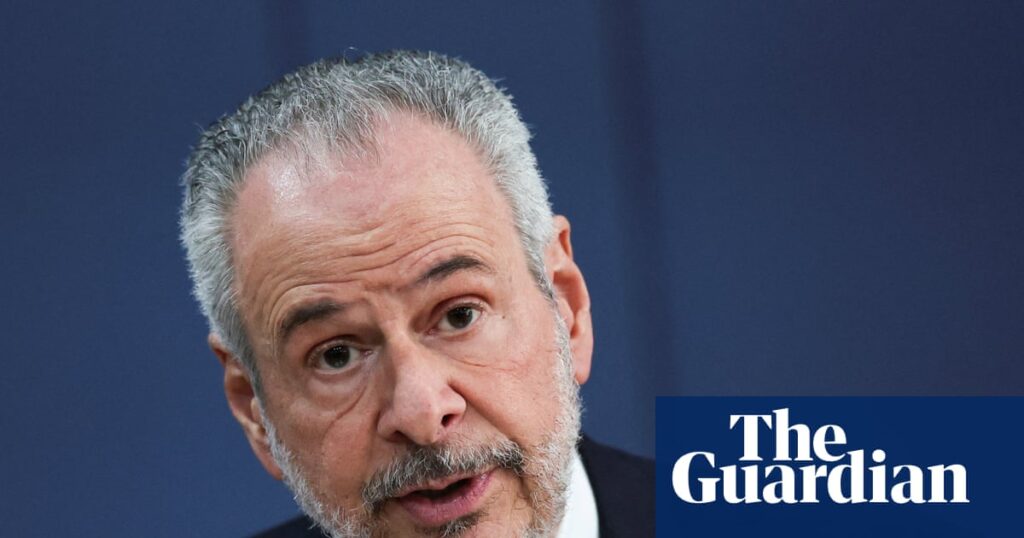
Rich countries are reportedly losing their enthusiasm for tackling the climate crisis, while China is advancing in the production and use of clean energy technologies. This observation was made by André Corrêa do Lago, the Brazilian diplomat presiding over the upcoming Cop30 conference, which begins on Monday in Belém, a city nestled within the Amazon rainforest.
Corrêa do Lago urged nations to emulate China’s proactive approach rather than lament being outpaced. “Somehow the reduction in enthusiasm of the global north is showing that the global south is moving,” he stated, highlighting the momentum in the southern hemisphere. “It is not just this year, it has been moving for years, but it did not have the exposure that it has now.”
China’s Role in Clean Energy
China, the world’s largest emitter of greenhouse gases, is also leading in the production and consumption of low-carbon energy. “China is coming up with solutions that are for everyone, not just China,” Corrêa do Lago remarked. “Solar panels are cheaper, they’re so competitive [compared with fossil fuel energy] that they are everywhere now. If you’re thinking of climate change, this is good.”
The Cop30 conference will see ministers and officials from 194 countries gather to draft strategies to adhere to the Paris Agreement’s 1.5C temperature rise limit, phase out fossil fuels, and secure aid for poorer nations. National plans to reduce greenhouse gas emissions, currently projected to result in a 2.5C rise, will be a focal point.
Challenges and Expectations at Cop30
Ilana Seid, Palau’s ambassador to the UN and a spokesperson for the Alliance of Small Island States (Aosis), emphasized the necessity of a global pathway to more substantial emissions reductions. “Progress so far has been insufficient and we have to have a response,” she told the Guardian. “Otherwise, we don’t know where we are going.”
The Brazilian hosts are prioritizing “implementation” of existing commitments, such as reducing emissions, tripling renewable energy by 2030, and doubling energy efficiency. However, Aosis insists on more aggressive policies to meet the 1.5C target. “The 1.5C target must be our north star,” Seid asserted. “We need to say that collectively we are falling short on that, and we need to have a response.”
Developing nations also seek assurances of the promised financial support to mitigate climate impacts. A roadmap to transition from fossil fuels is another critical agenda item. Despite Brazil’s efforts to prevent disputes over the conference agenda, disagreements are anticipated as the event commences.
Methane Emissions: A Persistent Challenge
As the conference begins, it has been revealed that a key climate pledge is faltering. At Cop26 in Glasgow, a global methane pledge was established, aiming for a 30% reduction by 2030. However, emissions from major signatories have risen, as shown by data from satellite analysis company Kayrros. Emissions from the US, Australia, Kuwait, Turkmenistan, Uzbekistan, and Iraq are now 8.5% above 2020 levels.
Antoine Rostand, president of Kayrros, stated, “Despite the promises made year after year, despite the worsening state of the climate, methane emissions are rising. Our analysis makes that painfully clear. Can we expect things to change? We must at least hope they do. The clock is ticking.”
Methane, a greenhouse gas 80 times more potent than carbon dioxide, contributes significantly to recent warming. Reducing it could act as an “emergency brake” on global temperatures, but countries have yet to implement necessary measures.
Durwood Zaelke, president of the Institute for Governance and Sustainable Development, advocates for a binding global agreement on methane. “With emissions still high, the voluntary pledge is clearly not enough to keep us from passing the fast-approaching tipping points,” he said. “We need a more muscular binding methane agreement.”
Looking Forward
The Cop30 conference represents a critical juncture in global climate policy, with significant implications for future international cooperation. As nations convene, the focus will be on bridging the gap between current efforts and the ambitious targets set by the Paris Agreement. The outcomes of these discussions could shape the trajectory of global climate action for years to come.
With the stakes higher than ever, the world watches as leaders gather in Belém, hoping for decisive action that will steer the planet towards a sustainable future.





